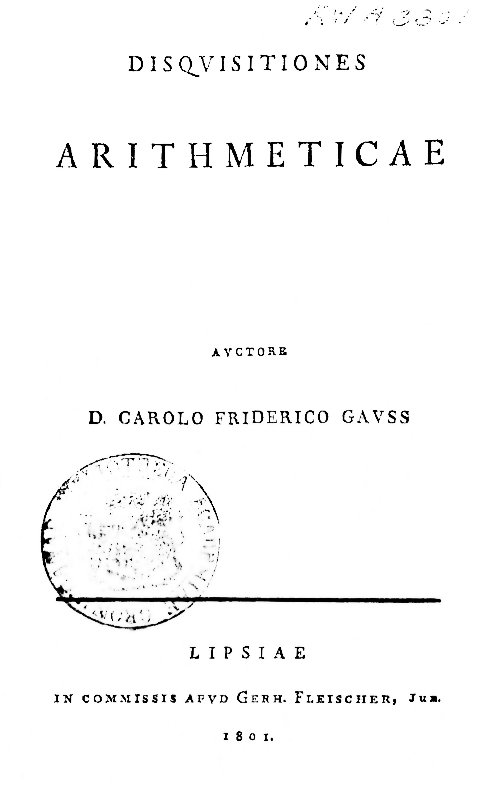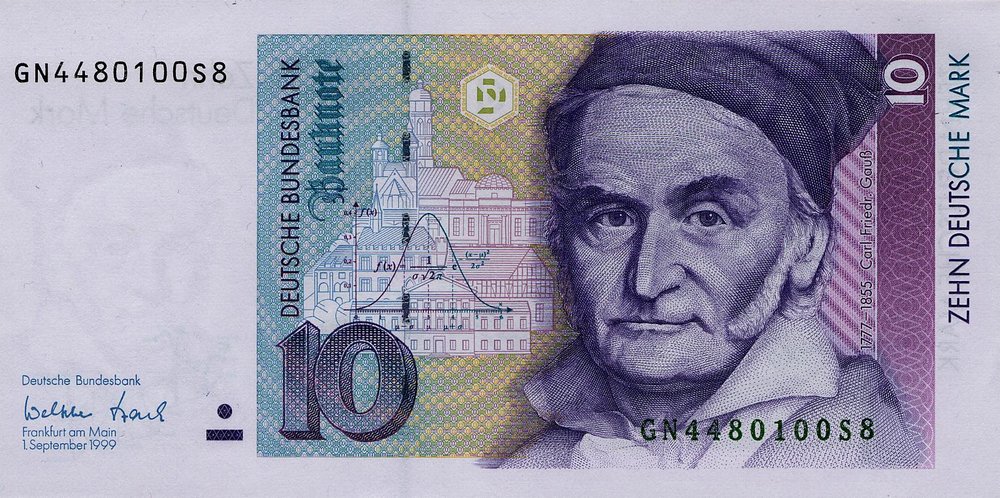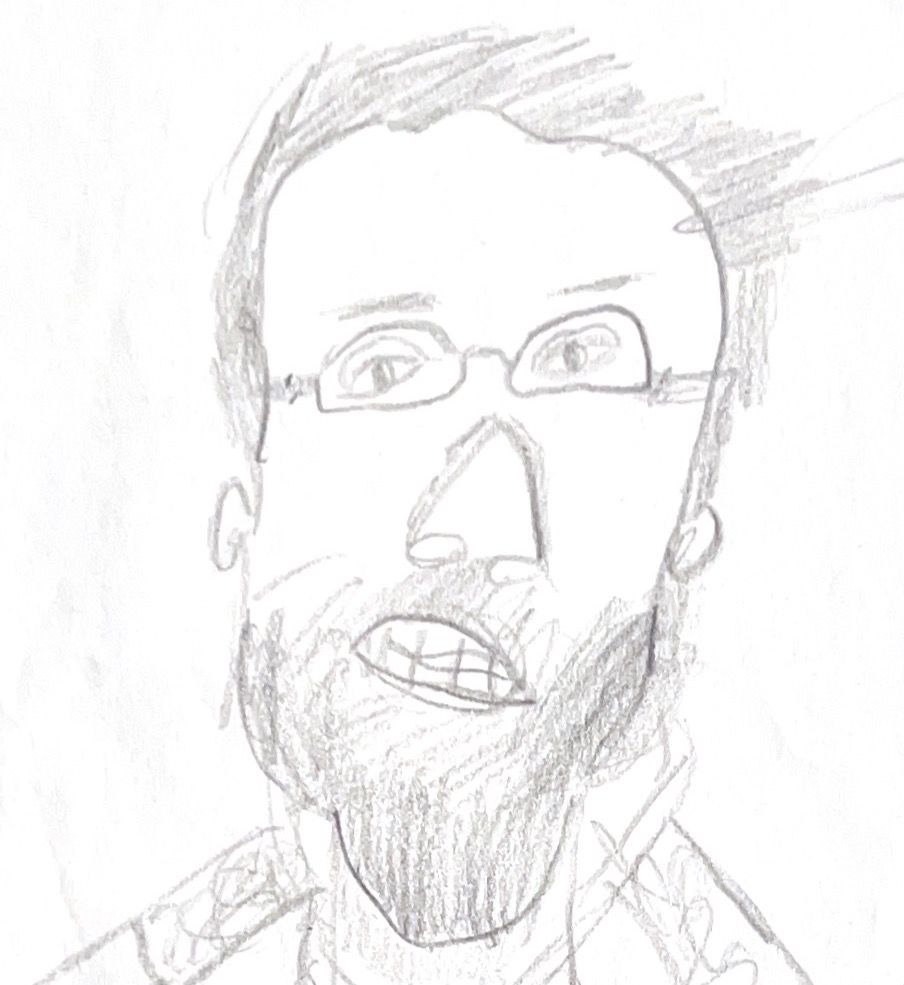ma483: Number Theory - w24

(CC BY-SA 4.0) : link

(CC BY-SA 4.0) : link
Class Meetings
- Winter 2024 (Jan16 → May4)
- MWF 10-10:50AM
- JXJ 2315
- zoom link - passcode 331571
Instructor

Daniel Rowe
darowe@nmu.edu
I'm an assistant professor of mathematics in the Mathematics and Computer Science Department at Northern Michgan University. I've been a professor at NMU for eight years, and I am very passionate about the praxis of doing mathematics and teaching it. I grew up on a fishing camp in Northwestern Ontario, Canada.
Need Math Help?
- Office Hours
- Tue 9-9:50AM, Thu 10-10:50AM, 1-1:50PM
- JXJ 2228
- zoom link - passcode 809390
- read the relevant section(s) of our materials
- study all posted solutions
- re-watch the recorded lectures
- math tutor lab
Success in College Classes
- the instructor's job is to ensure content is clear, organized, and engaging
- your job is to attend class, engage your mind, ask questions,
read the material, and apply yourself
Class Structure
- hybrid-flexible, in-person and over zoom
- recordings available 2-3 days after each class
- strive for in-person attendance
- avoid becoming reliant on zoom and recordings!
- use them for extenuating circumstances only
- engagement is vital to learning mathematics (or anything)
- (40%) Homework
- (25%) Traditional In-Class Midterm Exam
- (35%) Traditional In-Class Final Exam
Grade Scale
A (92-100%)
A- (90-91%)
B+ (86-89%)
B (82-85%)
B- (80-81%)
C+ (76-79%)
C (72-75%)
C- (70-71%)
D+ (66-69%)
D (62-65%)
D- (60-61%)
F (≤ 59%)
Learning Outcomes
This is a course on the fundamentals of number theory. We will study the Euclidean algorithm and solving the general linear Diophantine equation. Then we will study many properties related to prime factorization: the fundamental theorem of arithmetic, the infinitude of primes (in arithmetic progressions), the prime number theorem, the Riemann hypothesis, the twin prime conjecture, the bounded gaps theorem, Goldbach's conjecture, probabilty of coprimality, divisor-sum functions, perfect numbers, and Mersenne primes. Then we will turn our focus towards fundamental properties of rational and constructible numbers. Finally we will study foundational theorems related to modular arithmetic: the chinese remainder theorem, Lagrange's four-square theorem, modular inverses, Euler's totient theorem, Wilson's theorem, RSA encryption, quadratic residues, Zolotarev's lemma, and the law of quadratic reciprocity. By the end of the class, students will be comfortable with and able to apply all of the above concepts and theorems.
Class Materials
Submitting Your Work
- for midterm and final: physical paper in-class
- for homework: put a .pdf file inside our shared google folder
- the shared google folder will be titled w24_ma483_lastname
- I will share it with you within the first two weeks
- please don't submit anything via email attachment
- name your files in an organized manner, for example: hw1_Jane_Smith.pdf
- always show your work and keep it organized
- indicate/circle/highlight your answers
- answer the questions in the correct order
Late Submissions
- for midterm and final: written in-class on the day
- for homework: no late penalty until
the solutions are posted, then -50%
Checking Your Grade
- you can check your grade anytime, look for
untitled spreadsheet in our shared folder
Accessibility
If you have a need for disability-related accommodations or services, please inform the Coordinators of Disability Services in the Dean of Students Office at 2001 C. B. Hedgcock Building (227-1737 or disability@nmu.edu). Reasonable and effective accommodations and services will be provided to students if requests are made in a timely manner, with appropriate documentation, in accordance with federal, state, and University guidelines.
Extra Credit Problems
- list of extra credit problems
- (please read the instructions before you submit)
- repository of solved extra credit problems
- (check which problems have been solved before trying one)
Homework + Exams
- hw1 (due 1/28 @ 11:59PM) → sol (posted 2/5 @ 1:00PM)
- hw2 (due 2/7 @ 11:59PM) → sol (posted 2/19 @ 5:45PM)
- hw3 (due 2/18 @ 11:59PM) → sol (posted 2/26 @ 8:00PM)
- hw4 (due 3/14 @ 11:59PM) → sol (posted 3/27 @ 3:00PM)
- hw5 (due 3/31 @ 11:59PM) → sol (posted 4/11 @ 2:10PM)
- hw6 (due 4/11 @ 11:59PM) → sol (posted 4/23 @ 4:00PM)
- hw7 (due 4/28 @ 11:59PM) → sol (posted 4/29 @ 3:30PM)
- practice midterm → sol
- midterm exam (3/13 @ 10:00-10:50AM) → sol
- practice final→ sol
- final exam (Wed 5/1 @ 10:00-11:50AM)
Schedule + Recordings
wk1: jan15 → jan19
□ study this webpage and all class information
□ attend the lectures
□ read chapter 0 - Seeing Arithmetic
□ start working on hw1
- 1/19
- p.14-21
- divisors
- Hasse diagrams
wk2: jan22 → jan26
□ attend the lectures
□ start reading chapter 1
- 1/22
- the Euclidean Algorithm
- GCD(a,b)
- solving ax + by = d over Z
- 1/24
- p.25-31
- GCD(a,b) and LCM(a,b)
- solving ax + by = 0 over Z
- solving ax + by = c over Z
- discussion of hw1
- 1/26
- p.32-36
- discussion of hw1
wk3: jan29 → feb2
□ finish reading ch1, start ch2
□ start working on hw2
- 1/29
- p.37-43
- the fundamental theorem of arithmetic
- GCD(a,b)LCM(a,b) = ab
- Sieve of Eratosthenes
- brute-force check for primality
- 1/31
- p.43-45
- brute-force check for primality
- the infinitude of primes
- macroscopic properties of primes
- 2/2
- primes in other sequences
- discussion of hw2
- p.45-54
wk4: feb5 → feb9
□ keep reading ch2
□ keeping working on hw2
- 2/5
- discussion of hw2
- Fundamental Theorem of Arithmetic: the proof
- prime address
- p.55-60
- 2/7
- p.60-66
- abc and Golbach conjectures
- more on prime addresses
- divisor sum functions
- 2/9
- divisor sum functions
- explicit formula
- help with hw3
wk5: feb12 → feb16
□ finish reading ch2
□ start working on hw3
- 2/12
- p.66-68
- discussion of hw1
- Mersenne primes, perfect numbers
- Euclid's proof: Mersenne primes create even perfects
- 2/14
- p.68-71
- Euler's proof:
- even perfects come from Mersenne primes
wk6: feb19 → feb23
□ start reading ch5
□ start working on hw4
- 2/19
- modular arithmetic
- dealing with reciprocals mod n
- p.127-130
- 2/21
- discussion of hw4
- translation of statements mod n
- dealing with exponents mod n
- p.130-134
wk7: feb26 → mar1
□ keep reading chapter 5
- 3/1
- solving equations mod n
- p.134-136
wk8: mar11 → mar15
□ attend the lectures
□ miterm exam on wednesday
□ finish up homework 4
- 3/11
- discussion of hw4
- midterm prep
- 3/13
- midterm exam (traditional, in-class, 10-10:50AM)
- 3/15
- p.135-141
- solving equations mod n
wk9: mar18 → mar22
□ attend the lectures
□ start working on hw5
- 3/18
- p.142-145
- alternate universes of number theory
- Z versus (Z/p)[x]
- 3/20
- p.145-154
- factoring in (Z/p)[x]
- modular dynamics
- 3/22
- p.154-158
- modular dynamics
- Euler-Fermat theorem
wk10: mar25 → mar29
□ attend the lectures
□ keep working on hw5
- 3/25
- p.158-159, p.164
- cycles of multiplication mod p
- 3/27
- help with hw5
- totient sum formula (p.164)
- 3/29
- primitive roots modulo a prime (p.165)
- assembling the modular worlds (p.173-174)
- vertical and horizontal connections
- Chinese Remainder Theorem (CRT)
wk11: apr1 → apr5
□ attend the lectures
□ start working on hw6
- 4/1
- p.174-177
- proof of CRT
- using the CRT
- 4/5
- p.178-181
- the way CRT relates to phi
- another formula for phi
wk12: apr8 → apr12
□ attend the lectures
□ finish up hw6
□ start working on hw7
- 4/8
- p.182-185
- lifting reciprocals mod prime powers
- lifting square roots mod prime powers
- 4/10
- examples of lifting
- help with hw6
- 4/12
- p.193-196
- solving modular quadratics
- Wilson's theorem
- 50% squares, 50% non-squares
- intro to quadratic reciprocity
wk13: apr15 → apr19
□ attend the lectures
□ start working on hw7
- 4/15
- p.196-203
- Euler's criterion for squareness
- the Legendre symbol
- quadratic reciprocity for -1
- quadratic reciprocity for 2
- 4/17
- p.203-209
- general statement of QR
- review of permutations
- 4/19
- p.209-215
- my notes
- Zolotarev's dynamic proof
wk14: apr22 → apr26
□ attend the lectures
□ finish up hw7
□ study for the final exam
- 4/24
- implications of QR
- help with hw7
- review for final
wk15: apr29 → may3 (FINAL EXAM WEEK)
□ final exam: Wed May 1, 10-11:50AM, JXJ 2315
□ special office hours: Tue Apr 30, 11-1:00PM
□ traditional in-person exam
□ no electronic devices
□ complete any late homework for 50% (by 5/3 @ 11:59PM)
□ try an extra credit problem? (by 5/3 @ 11:59PM)
- class evaluations
- please fill out the class evaluation
- I would REALLY appreciate it!
- the evaluation link is active:
- now → Fri May 3 @ 11:59PM


